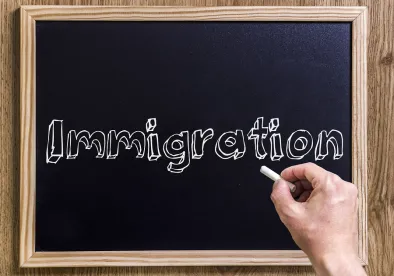Today, the House Judiciary Committee will consider H.R.5203, the Visa Integrity and Security Act of 2016. The bill is authored by Representative Randy Forbes of Virginia.
The bill’s purpose is to enhance security procedures for the processing of both immigrant and nonimmigrant visas. We provide a sectional summary of the bill below.
Section 2 of the bill adds new section 211A to the Immigration and Nationality Act (INA) to require that all petitions and applications filed with the Department of Homeland Security (DHS) or a consular officer contain all required signatures. In the case of immigrant visa applications, the bill requires that each application shall be signed in the presence of the consular officer, and verified by oath. Section 211A also specifies that all documentation provided in support of either an immigrant or nonimmigrant visa must be translated into English. Section 211A requires that no petition or application may be approved until any additional information requested by DHS or a consular officer is provided consistent with any deadline specified in the request.
New section 211B mandates that background checks be conducted for all petitioners or applicants to determine whether an individual poses a “national security threat” or is otherwise ineligible for a visa or admission to the United States. The background check required in this section “shall include” a review of each individual’s social media activity. Further, the section requires that for nationals of Iran, Iraq, Libya, Somalia, Syria, Sudan, Yemen, or another country the DHS Secretary “determines appropriate,” a security advisory opinion must be completed prior to issuance. The section outlines certain exceptions to this requirement.
In the case of petitions and applications based upon a biological relationship, section 211B requires that a genetic test must be obtained proving the biological relationship between petitioner and beneficiary, and that such test must be submitted at the time of application. The bill specifies that the test shall be obtained at the expense of the petitioner or applicant. Finally, the section requires that DHS must conduct an in-person interview with every person seeking “any benefit” under the INA, with the exception of a work authorization. The section permits the Secretary to waive this requirement for individuals 10 years of age or younger.
Section 3 directs DHS to prepare a plan for the use of “advanced analytics” software to detect immigration benefit fraud and potential national security threats. Section 3 also requires DHS to complete a benefit fraud assessment by fiscal year 2021 for the following visa categories: VAWA self-petitioners, visas issued under section 101(a)(15)(K) (spousal and fiancé), visas issued under section 101(a)(27)(J) (juvenile), visas issued under section 101(a)(15)(U) (U visas for victims of crime or those aiding law enforcement), visas issued under section 101(a)(27)(C) (special immigrant—minister), applications for asylum under section 208, applications for adjustment of status under section 209, and petitions for visa or status under section 201(b).
Section 4 provides authority to the Secretary of State to impose surcharges to support visa security activities. Section 4 also amends the Homeland Security Act of 2002 to require, within four years following enactment of the bill, the assignment of DHS personnel to “each diplomatic and consular post at which visas are issued.” The section spells out the requirements for cooperation from the Department of State to implement this requirement.
Section 5 of the bill amends section 291 of the INA concerning the burden of proof upon a petitioner or applicant for an immigration benefit. The proposed amendment would change the current standard, “to the satisfaction of the consular officer” to the standard that each individual prove eligibility or admissibility by “clear and convincing” evidence.
Finally, Section 6 mandates a report to be conducted by the Government Accountability Office (GAO) to “review and report to Congress on the security of nonimmigrant and immigrant visa application processes.”


 />i
/>i

